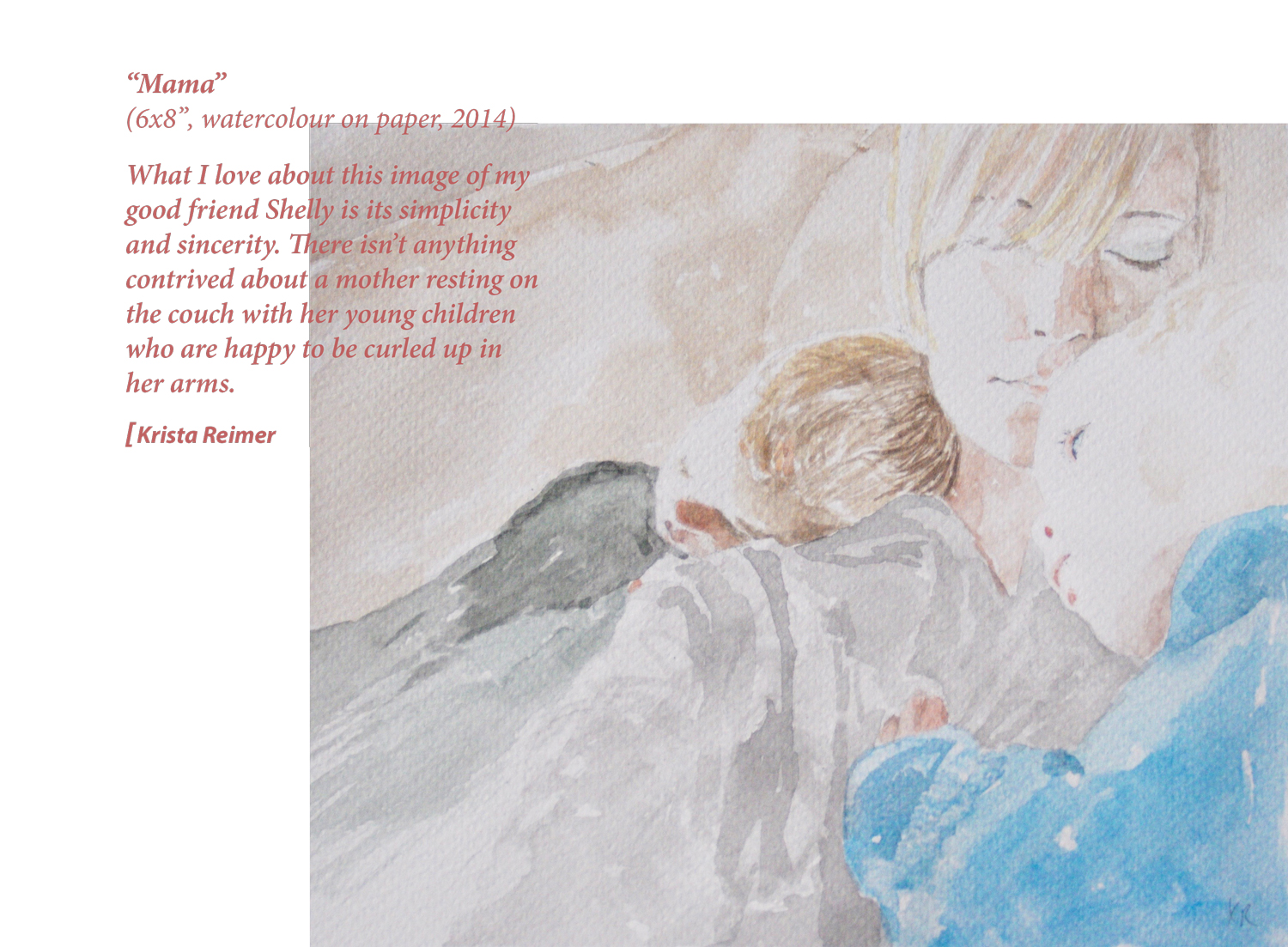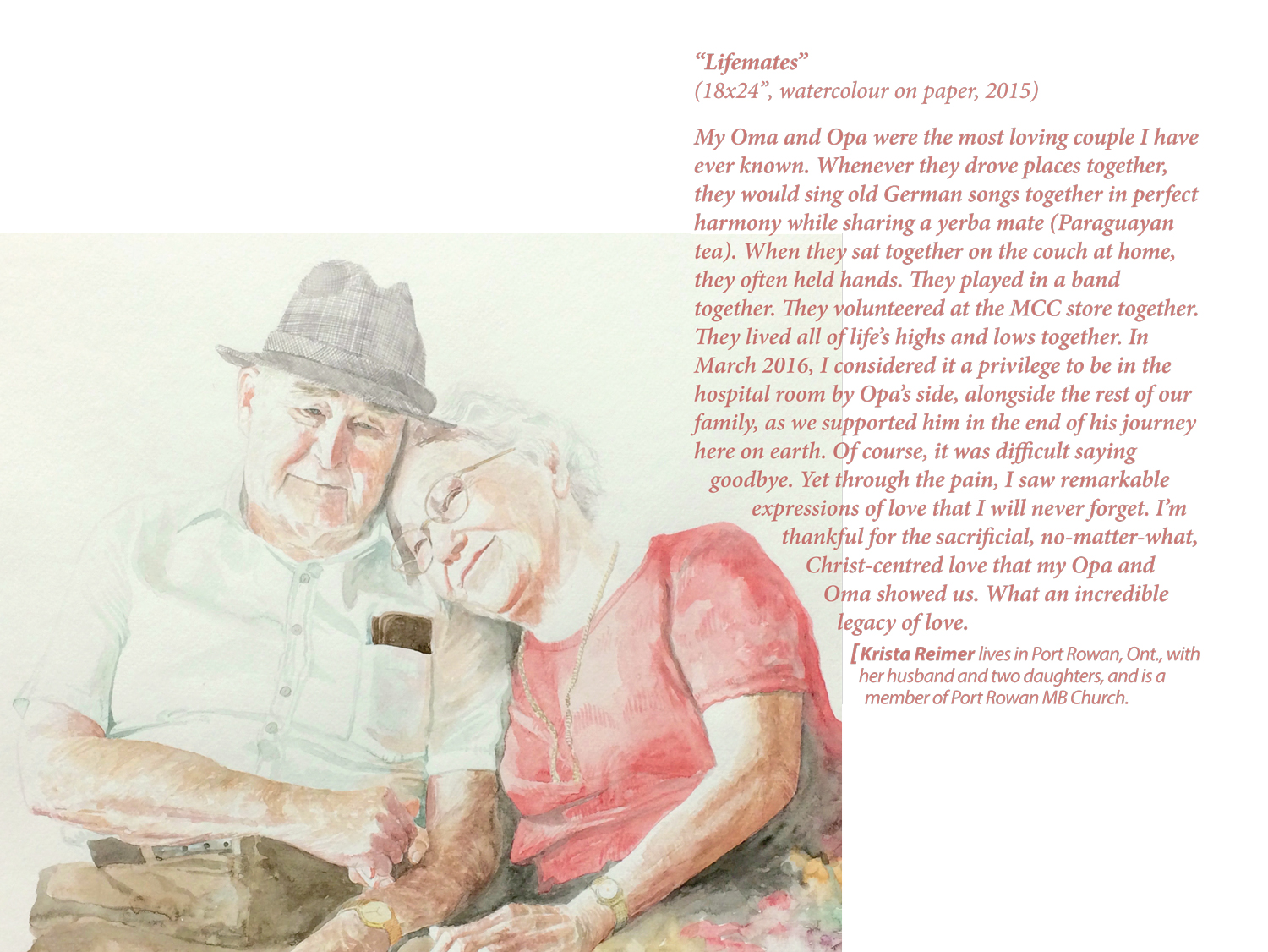What I’ve learned about end-of-life care

I lay on the pullout chair on one side of his bed; my sister on another. We wanted to be there, but we were tired. It was our turn to be with our 20-year-old brother as he lay dying in the hospital. We had spent the past eight weeks together as he lived with terminal lung cancer – from the cancer clinic to the chemo room to this hospital room where he now slept peacefully.
I had never been with anyone who was dying. I was 22, and I was lost. At 5:30 a.m., Dad took over our shift, and we went home to our own beds to sleep. Three hours later, Brian died with Dad at his side. We all drove back to the hospital, gathered around his body and shared our deep sadness. I couldn’t believe he had died. I was in shock.
It’s almost 30 years later and I can barely write about it. I wish I had done more. It would have taken courage for me to hold my brother’s hand, stroke his face, sing to him or read Scripture – but I wish I had done that for him.
So much had already changed with his diagnosis two months earlier. Our spiritual conversations opened up. We had daily devotions together using Dick Purnell’s Knowing God by His Names. I helped my brother write his faith journey which he shared with our church as he stood in the baptismal tank. It was the last day that he could walk. Still, I wish I had been more present with him in those final hours. I didn’t know.
That was my introduction to end-of-life care. It wasn’t just my brother who needed care. I needed care, too. It wasn’t just medical attention my brother needed. Our whole family could have used a guide.
Now I am one.
Community of believers
After years of university ministry, my husband became lead pastor of Broadway Church, Chilliwack, B.C., a congregation with a legacy of “a long obedience in the same direction.” One of these exemplary lives was Walter Wiebe. He was a saint in my eyes. He was also our first palliative visit as a couple. Walter shared his experience transparently – he was a man of faith, a man of doubts and a man who did not fear being honest with his Lord.
Walter needed support in his final hours to help him finish well. The look in his eyes conveyed a longing for spiritual encouragement from us. He needed the Spirit’s touch through the community of believers. My eyes were opening to this powerful and important ministry at end-of-life.
Community of caregivers
Now, I serve on the executive team at B.C.’s largest campus-of-care for seniors, Menno Place, in Abbotsford, B.C. Founded by a group of thirtysomething Mennonites in 1953, Menno Place’s vision is to provide compassionate Christian care for all who call our campus home. It is a privilege to serve more than 700 seniors living on this campus in the final years of their lives. When a senior moves into one of our residential care homes, the current statistics project they will live for another 18 months. We know that our ministry here is to support our residents and their family members at the end of life’s journey.
Community of practitioners
Practitioners in senior care are challenged with finding our way in a society with differing values. In a time when medical assistance in dying is legal: What do we do as a Christian organization? What do we do as Christian individuals? How will our decisions affect government funding? Will the Christian community support us if there are legal implications to our decisions? Which ethical and moral questions have clear answers and which are more grey?
Fifty-five Mennonite-founded health organizations in Canada explored these concerns together at the past two Canadian Mennonite Health Assemblies. Through discussions and presentations on the medical assistance in dying legislation in Canada, one thing has become clear: church-founded health institutions need to be national leaders in the practice of end-of-life care.
We need to follow best practices for managing pain, offering spiritual care, honouring the dying individual. We need to provide spiritual support to the families and friends of those who are facing their final days. And we need to create new practices that exceed expectations.
To the best of our ability, we must remove hurdles that make the coming weeks or years seem unbearable and that motivate an individual to hasten dying: hurdles like fear, aloneness, shame, regrets, mental anguish and existential, physical and relational pain. We need to find innovative ways to address all these aspects.

Community of conversation
As a host on the Death Matters Live radio show on Vancouver Co-op Radio (www.DeathMattersLiveRadio.com), I’ve spent two years processing all sorts of matters relating to death and dying. I’ve had the privilege of interviewing top palliative care doctors, ethicists, philosophers, hospice designers, and people who are recently bereaved. Sharing the hosting with four others who provide bereavement services, I have learned much. The secular community is also supporting those who are dying. From death doulas to Death Cafés (www.DeathCafe.com), creativity is overflowing.
Community of leaders
As people grounded in the belief that “all human life belongs to God” (Article 14, Confession of Faith), the Christian community has a calling to be leaders in holistic end-of-life care.
There is an invitation for individuals – from teens to seniors – to receive training and give their time and energy to spiritual support for people who are dying and their loved ones.
There is an invitation for the medical community to become experts in geriatric and palliative care.
There is an invitation for individuals and churches to fund chaplaincy to ensure its continuation is not tied to government support.
This invitation will impact generations, both secular and Christian, as we learn through shared experiences what it means to die well and to open our hearts to the love, comfort and peace of God in our time of need.
Thirty years ago, I would have welcomed some guidance as I sat with my brother in his final months and hours. I could have used a shoulder to cry on, words of hope and intentional spiritual conversations.
I invite you to consider how your church, your time, your ministry, your heart and your resources can contribute to the unique and vital ministry of end-of-life care.
[Sharon Simpson is director of communications and stakeholder engagement at Menno Place in Abbotsford, B.C. She hosts the Death Matters Live radio show, writes a monthly columnist on senior’s issues for The Light Magazine and serves as secretary on the BCMB executive board. Sharon has three grown sons, a daughter, a son-in-law and a brand new granddaughter. Sharon is married to Gary Simpson, lead pastor at Broadway MB Church in Chilliwack, B.C.
See also:
[contentcards url=”https://mbherald.com/between-two-worlds” target=”_blank”]
Listen